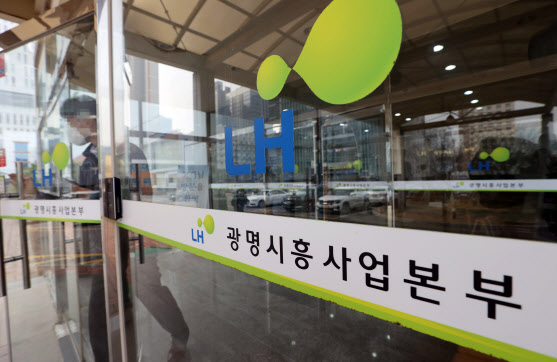|
[이데일리 장순원 기자] As North Siheung Nonghyup was caught up in speculation by the Korea Land and Housing Corporation (LH), the loose loan management behavior of mutual finance came to the fore. It is also a situation in which Deputy Prime Minister Hong Nam-ki ordered the Financial Supervisory Service to investigate the agricultural cooperatives.
Looking at the records that the Financial Supervisory Service inspected and sanctioned by the Financial Supervisory Service for the last three years, unfair loans by employees or poor loan review are common points in the mutual financial sector including the Nonghyup.
A local nonghyup branch manager in Gyeongbuk handled his real estate mortgage loan worth about 690 million won. At the time, the collateral was not built on the ground, so it had to be evaluated by an external appraisal agency, but received a loan through its own appraisal. In just a couple of months later, the manager reappraised the same collateral and received an additional loan worth 200 million won. In this Agricultural Cooperative, the borrower’s credit status did not change much for nine general loans, but there was also a case of lowering the interest rate over a total of 18 times.
Another Nonghyup in Gyeongsangbuk-do handled loans as collateral for land that was not recognized as collateral, and was caught when it offered mortgage loans to some employees on more favorable terms than general customers. A union in Gyeongnam was also disciplined for handling six cases, including general loans with land as collateral for three executives and employees under the name of their families. The union violated the rule that it cannot handle loans that are collateralized with real estate other than the employee’s own home.
The number of over-handling of the same person’s loan limit is also a lot. The union may not lend to the same person in excess of the limit set within the range of 20/100 of equity capital or 1/100 of total assets, whichever is greater. The aim is to protect the integrity of the union by preventing lending to some. However, there were not a few cases where various nonghyups were sanctioned for making loans beyond this limit to certain borrowers.
A nonghyup in Gyeonggi-do was a representative of an individual business owner or corporation whose borrower had a business license while handling loans for 7 people as collateral, such as shopping malls and land.
Even if a series of unfair acts were caught, the punishment was limited to a cotton bat. In most cases, unions end up with management attention, and employees with reprimand or caution.
An official from the financial authorities said, “In case of violation of the bylaws, the supervisory measures often end with a yellow card.”

